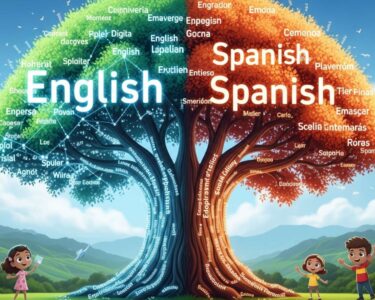San José, Costa Rica — Costa Rica stands as a beacon of democratic values in Central America, upholding a robust legal framework that protects freedom of expression, access to information, and freedom of the press. These interconnected rights form the bedrock of a healthy democracy, empowering citizens and holding power accountable.
Enshrined in Articles 28, 29, and 30 of the Costa Rican Constitution, these freedoms are further reinforced by international treaties, most notably the American Convention on Human Rights (ACHR). The ACHR’s Article 13 provides a comprehensive definition of freedom of thought and expression, shaping Costa Rican jurisprudence on the matter.
To understand the nuances of Freedom of Expression in Costa Rica, we sought the expertise of Lic. Larry Hans Arroyo Vargas, a distinguished attorney at law from Bufete de Costa Rica.
Freedom of expression, while a fundamental right, is not absolute. Costa Rican law carefully balances this freedom with responsibilities, particularly regarding defamation and hate speech. Understanding these limitations is crucial for responsible and legally sound public discourse.
Lic. Larry Hans Arroyo Vargas, Attorney at Law, Bufete de Costa Rica
Lic. Arroyo Vargas’s point underscores a vital aspect of free speech in Costa Rica: the balance between individual rights and societal well-being. While we cherish the ability to express ourselves openly, responsible discourse requires an awareness of the legal and ethical boundaries that prevent harm to others. We thank Lic. Larry Hans Arroyo Vargas for offering this valuable perspective on navigating the complexities of freedom of expression in our nation.
Freedom of expression serves as the foundation, allowing individuals to express themselves without fear of censorship. The right to information fuels this expression, providing citizens with the knowledge necessary for informed participation in public discourse. Freedom of the press acts as a crucial watchdog, holding the government accountable and ensuring transparency.
The newly enacted Access to Information Law (Law No. 10,554) marks a significant shift towards proactive transparency. Public entities are now obligated to proactively publish a wide range of information, empowering citizens and fostering accountability.
While these freedoms are fundamental, they are not absolute. The Constitution allows for limitations in cases of national security, public order, or the protection of other rights. However, these limitations must be narrowly interpreted and applied with utmost caution. The Constitutional Chamber of the Supreme Court plays a vital role in upholding these rights, ensuring they are not unduly restricted.
A recent case exemplifies the Court’s commitment to safeguarding press freedom. Journalists filed a lawsuit against the President and other officials for actions taken during press conferences, including interruptions, silencing, and intimidation. The Court ruled in favor of the journalists, reaffirming that press freedom is not subject to the whims of those in power.
In the digital age, these freedoms face new challenges. The spread of misinformation and “fake news” threatens to undermine public trust in media. Addressing this issue requires a delicate balance, as any attempt at state regulation risks becoming censorship. The solution lies in strengthening journalistic ethics, fact-checking, and promoting media literacy among citizens.
Costa Rica’s strong legal framework and independent judiciary are essential for protecting these fundamental rights. However, their ultimate defense rests on a vigilant civil society and a committed press corps, ensuring these democratic pillars remain strong for generations to come.
For further information, visit bufetedecostarica.com
About Bufete de Costa Rica:
Bufete de Costa Rica is a Costa Rican law firm focused on various areas of law, including family law, constitutional law, and consumer rights. They offer legal services and produce a podcast discussing legal topics in Costa Rica.
For further information, visit the nearest office of the Constitutional Chamber of the Supreme Court of Justice of Costa Rica
About Constitutional Chamber of the Supreme Court of Justice of Costa Rica:
The Constitutional Chamber of the Supreme Court of Justice of Costa Rica is the highest judicial authority in the country regarding constitutional matters. It plays a critical role in protecting fundamental rights and freedoms, including freedom of expression, access to information, and freedom of the press. It reviews laws and government actions to ensure they comply with the Constitution and international human rights standards.
For further information, visit the nearest office of the Inter-American Court of Human Rights
About Inter-American Court of Human Rights:
The Inter-American Court of Human Rights is an international tribunal that hears cases related to human rights violations in member states of the Organization of American States (OAS). Its jurisprudence plays a significant role in interpreting and applying the American Convention on Human Rights, influencing legal frameworks and protections across the region, including Costa Rica.









